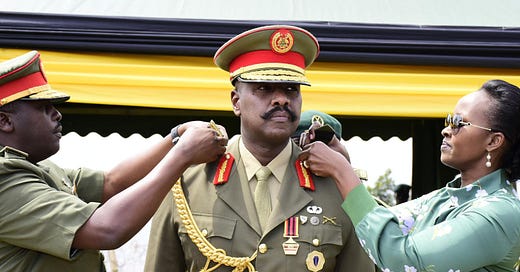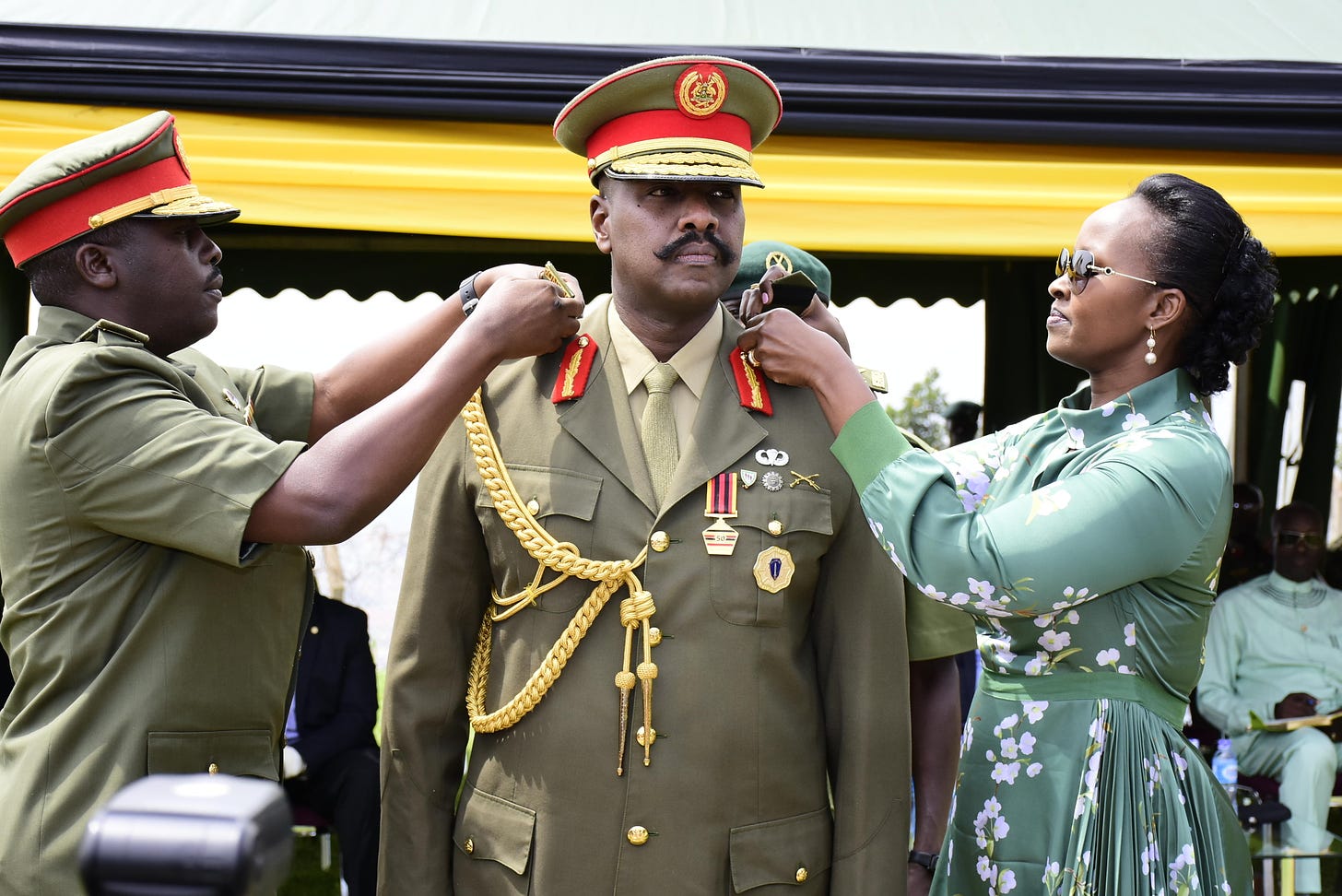Is a Presidential Dynasty in the Making in Uganda?
Speculations are Ripe But There Is A Lack of Substantiated Evidence to Support Claims of General Muhoozi Kainerugaba's Grooming as Successor to President Museveni
Speculation about the future of President Museveni’s son, General Muhoozi Kainerugaba, has long been a feature of Ugandan politics. And his recent appointment as Uganda's Chief of Defence Forces (CDF) sparked renewed interrogations about the implications it carries for the nation and its political landscape.
The insistant suggestion has been that General Muhoozi is being groomed as the successor to his father, President Yoweri Museveni. In the face of it, that seems to be the unavoidable conclusion.
But is there any hard evidence beyond the optics? Well, in this fact-checking piece, we examine the available facts to assess the substantiation of these claims.
No Conclusive Evidence
Despite the widespread speculation and assertions made by various sources, there is a lack of conclusive evidence to support the claims that General Kainerugaba is being groomed as the successor to President Museveni.
It is true that the General has ventured into politics, despite regulations prohibiting active-duty army officers in Uganda from engaging in political activities.
He has garnered support from a diverse group of young Ugandans, positioning himself as a potential future president. But this alone does not prove he is being groomed by President Museveni for succession.
Cabinet Reshuffle
“While these concerns reflect the sentiments of some individuals, they do not provide direct evidence of General Muhoozi's grooming as a successor.”
The recent minor cabinet reshuffle, which saw the removal of five ministers and the appointment of two individuals associated with General Muhoozi, has fuelled speculation about his future administration and potential succession.
Such appointments, however, can also be viewed as routine changes within the government and do not provide concrete evidence of a grooming process.
References to historical precedents in other African nations and General David Sejusa’s exposé on the “Muhoozi Project” in 2013 are often cited as evidence supporting the claims.
It is essential to note that these references are based on speculation and personal accounts rather than verifiable proof. General Sejusa’s claims were met with controversy and he fled into exile, while the extent of his influence within the military remains unclear.
President Museveni, on his part, has publicly refuted claims of grooming his son as his successor. Some experts suggest that General Muhoozi's appointment may serve other purposes, such as advising the president on matters of national security, defence, and military affairs.
The very same experts argue that the appointment showcases General Muhoozi’s capabilities to the public, while—admittedly—consolidating power within his family, rather than indicating a predetermined succession plan.
The Fear of monarchism
The concerns raised about perpetuating a dynastic regime and Uganda veering towards monarchism are primarily based on the prolonged rule of President Museveni who’s now been in power for 38 years, and the prominent positions held by his family members.
While these concerns reflect some legitimate sentiments in a democracy, they are hardly a smoking gun—they do not definitively provide direct evidence of General Muhoozi's grooming as a successor.
Certainly, General Muhoozi's appointment as Uganda’s Chief of Defence Forces has potential implications for military strategies, regional dynamics, and international relations. But these implications do not substantiate the claims of grooming as a successor.
Our Verdict
Based on the available evidence, and despite the overwhelming optics, there is a lack of substantiated proof to support the claims that General Muhoozi Kainerugaba is being groomed as the successor to President Museveni.
While there are indications of his involvement in politics and the appointment of individuals associated with him, these factors alone do not provide conclusive evidence of a predetermined succession plan.
The claims remain speculative, and further verifiable evidence is needed to substantiate them.






